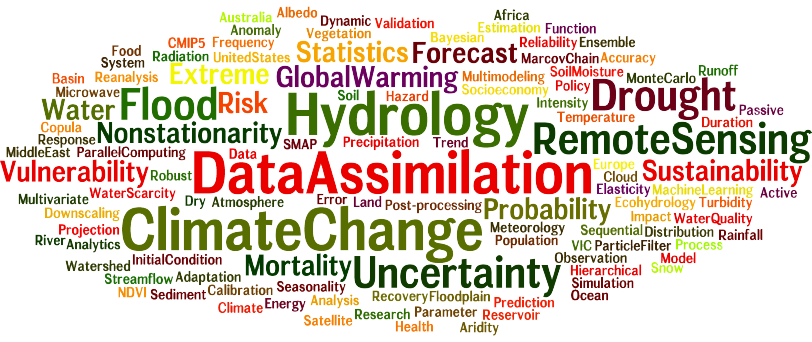
Moradkhani's research team has aimed to make significant contributions to hydrologic science/water resources system analysis and computational modeling with emphasis on harnessing data revolution, predictive science, uncertainty analysis, deep learning and high performance computing. Our research has focused on advancing our understanding of hydrologic science through modeling climate-water-human interactions as a complex system to result in sustainable management. Our group contributes to the interactions between climate, hydrology and water resources using the data sets and methods including climate model downscaling, remote sensing, state-of-the art data assimilation, distributed hydrologic modeling, ensemble inference, post-processing and multi-modeling. We are interested in characterizing, quantifying, reducing and communicating uncertainties and risks in all layers of simulation and forecasting while providing reliable hydroclimate extremes analyses under nonstationarity across spatial and temporal scales to allow understanding the impact of climate variability and change on water resources and environment. These include developing drought early warning system for monitoring and predictions and flood forecasting and inundation likelihood mapping. Our everlasting desire is to continue contributing to hydroclimate and remote sensing research not only by applied research but also by developing new insights by means of Bayesian inference, inverse modeling and cyberinovations.
